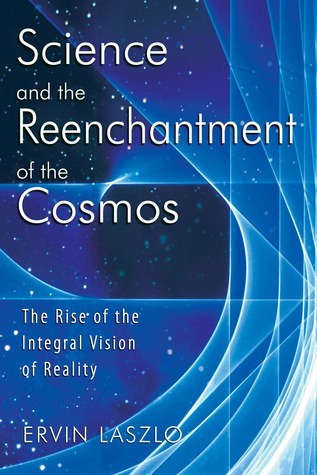
Presents a revolutionary new theory that bridges the divide between science and spirituality • Discloses the ramifications of non-localized consciousness and how the physical world and spiritual experience are two aspects of the same reality • Includes contributions from Jane Goodall, Ed Mitchell, Stanislav Grof, Ralph Abraham, and Christian de Quincy, among others What scientists are now finding at the outermost frontiers of every field is overturning all the basic premises concerning the nature of matter and reality. The universe is not a world of separate things and events but is a cosmos that is connected, coherent, and bears a profound resemblance to the visions held in the earliest spiritual traditions in which the physical world and spiritual experience were both aspects of the same reality and man and the universe were one. The findings that justify this new vision of the underlying logic of the universe come from almost all of the empirical sciences: physics, cosmology, the life sciences, and consciousness research. They explain how interactions lead to interconnections that produce instantaneous and multifaceted coherence—what happens to one part also happens to the other parts, and hence to the system as a whole. The sense of sacred oneness experienced by our ancestors that was displaced by the unyielding material presumptions of modern science can be restored, and humanity can once again feel at home in the universe.
Author

Ervin Laszlo is a systems philosopher, integral theorist, and classical pianist. Twice nominated for the Nobel Peace Prize, he has authored more than 70 books, which have been translated into nineteen languages, and has published in excess of four hundred articles and research papers, including six volumes of piano recordings. Dr. Laszlo is generally recognized as the founder of systems philosophy and general evolution theory, and serves as the founder-director of the General Evolution Research Group and as past president of the International Society for the Systems Sciences. He is also the recipient of the highest degree in philosophy and human sciences from the Sorbonne, the University of Paris, as well as of the coveted Artist Diploma of the Franz Liszt Academy of Budapest. Additional prizes and awards include four honorary doctorates. His appointments have included research grants at Yale and Princeton Universities, professorships for philosophy, systems sciences, and future sciences at the Universities of Houston, Portland State, and Indiana, as well as Northwestern University and the State University of New York. His career also included guest professorships at various universities in Europe and the Far East. In addition, he worked as program director for the United Nations Institute for Training and Research (UNITAR). In 1999 he was was awarded an honorary doctorate by the Canadian International Institute of Advanced Studies in Systems Research and Cybernetics. For many years he has served as president of the Club of Budapest, which he founded. He is an advisor to the UNESCO Director General, ambassador of the International Delphic Council, member of both the International Academy of Science, World Academy of Arts and Science, and the International Academy of Philosophy.